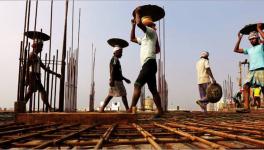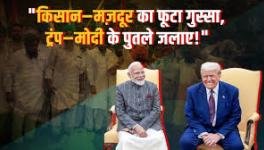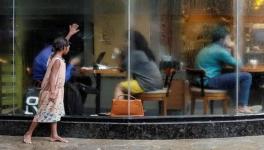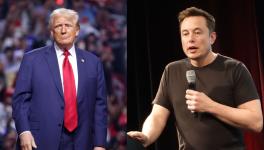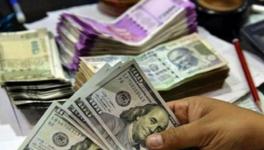India Enters Technical Recession for First Time in History
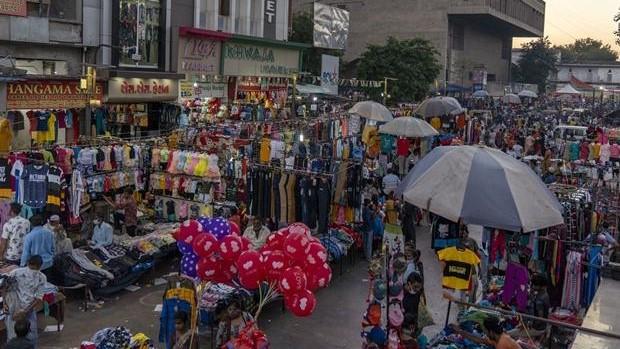
Representational image. | Image Courtesy: Business Standard
New Delhi: For the first time in India’s history, the Reserve Bank of India has flagged a warning that the Indian economy entered into a ‘technical recession’ in the first half of 2020-21.
“India’s economy probably shrank for a second straight quarter, according to a team of economists, including Michael Patra, the RBI’s deputy governor in charge of monetary policy, pushing the country into an unprecedented recession, according to a report by Bloomberg.
After an unprecedented contraction at 23.9% in April-June, the gross domestic product or GDP, as estimated by the National Statistical Office (NSO0 on August 31, the RBI’s ‘nowcast’ says that GDP for July-September quarter is set for a contraction of 8.6%, says a report by the Indian Express. ‘Nowcast’ is an estimate based on high-frequency data of the present or the very near future of the state of the economy.
The NSO estimates for the second quarter, which are expected in November-end, will formally bear out the extent of improvement that occurred in the quarter gone by, the RBI said in a ‘State of the Economy’ report.
Gross domestic product contracted 8.6% in the quarter ended September, the Reserve Bank of India showed in its first ever published ‘nowcast,’ which is an estimate based on high-frequency data. The economy had slumped about 24% in April to June.
In the world of economics, a negative GDP growth in two consecutive quarters or more is termed a “recession”.
According to Bloomberg, the team of authors “also used a range of indicators from vehicle sales to flush banking liquidity to signal brightening prospects for October,” and estimated that if this upturn was sustained, the Indian economy would “break out of contraction” of the six months gone by and return to positive growth in the October-December quarter of 2020-21.
“With the momentum of September having been sustained, there is optimism that the revival of economic activity is stronger than the mere satiation of pent-up demand released by unlocks and the rebuilding of inventories. If this upturn is sustained in the ensuing two months, there is a strong likelihood that the Indian economy will break out of contraction of the six months gone by and return to positive growth in the third quarter (Q3) of 2020-21,” RBI said in the report.
However, the central bank team also cautioned that “there is a grave risk of generalization of price pressures, unanchoring of inflation expectations feeding into a loss of credibility in policy interventions,” while flagging the risks to global growth from a second wave of coronavirus infections.
“Lurking around the corner is the third major risk -- stress intensifying among households and corporations, that has been delayed but not mitigated, and could spill over into the financial sector,” the economists concluded, adding that “We live in challenging times,” said Bloomberg.
Highlighting other “formidable downside risks” to any recovery, such as inflation, the RBI said: “The foremost (risk) is the unrelenting pressure of inflation, with no signs of waning in spite of supply management measures such as the imposition of stock limits on onion traders, imports of potatoes and onions (without fumigation) and a temporary reduction in import duties on pulses.”
Meanwhile, Congress leader Rahul Gandhi took potshots at Prime Minister Narendra Modi’s economic policies that he said had led India “into recession” for the first time in India’s history.
"India has entered into recession for the first time in history. Mr Modi's actions have turned India's strength into its weakness," he said on Twitter.
During the pandemic-induced sudden lockdown declared on March 25 by PM Modi, millions of people lost their jobs and consumer spending plunged.
According to preliminary estimates in RBI’s bulletin, there was a jump in household financial savings to 21.4% of GDP in April-June, up from 7.9% in the same period a year ago and 10% in January-March. The bulk of these savings are bank deposits, says a report.
Criticising the Modi government’s ‘ economic mismanagement’, the CPI(M) also tweeted: “ Modi Govt’s disastrous handling of #COVID19 and the Economy has destroyed the Economy and brought unemployment and misery to millions.”
Get the latest reports & analysis with people's perspective on Protests, movements & deep analytical videos, discussions of the current affairs in your Telegram app. Subscribe to NewsClick's Telegram channel & get Real-Time updates on stories, as they get published on our website.











